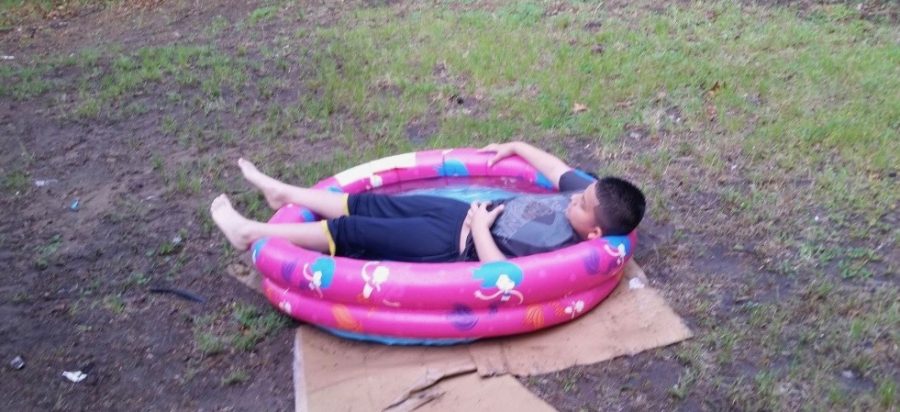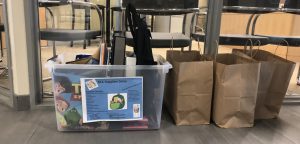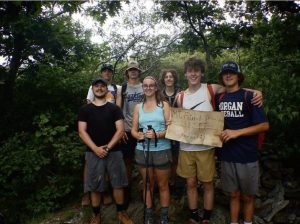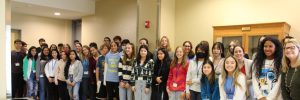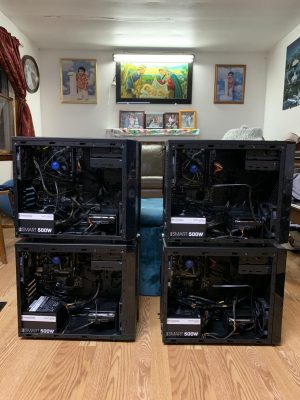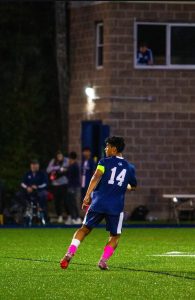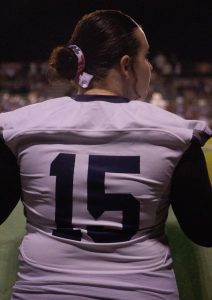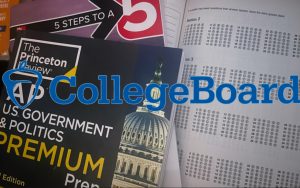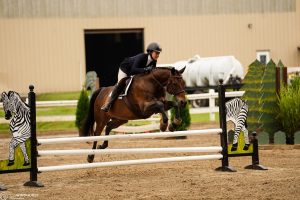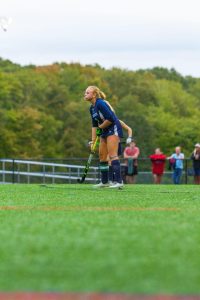Senior Spotlight: Abel Rodriguez Makes Morgan History
Honduran Immigrant Accepted to Harvard, Princeton, Brown, Cornell
April 21, 2023
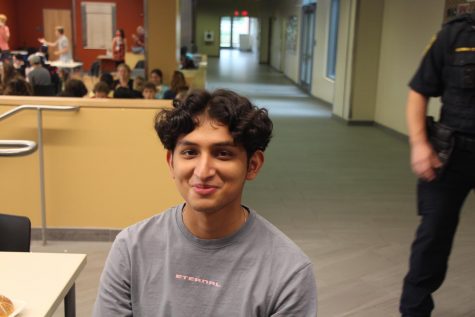
Born in Cortés, Honduras, Class of 2023 senior Abel Rodriguez paved his own path from the day he arrived in America at the age of six. Learning English in first grade was an uphill battle, but he toiled for years to prove himself academically. By the time high school rolled around, he was eager for the endless possibilities that The Morgan School would provide. During his freshman year, Abel sat down with his mother to discuss his aspirations for high school. His goal was simple: to defy the odds and attend college as a first-generation student. The opportunity to receive a post-secondary education was incredibly valuable to him given that neither of his parents had finished high school, let alone college.
Over his four years at Morgan, Abel invested himself fully into the community. His service today includes student representation in the Board of Education and the Clinton Human Rights Committee, leadership in the Morgan Social Justice Club, mentorship in tutoring ESL students, and a myriad of other community involvements. As time progressed, his post-secondary plans changed. “I can go to any college,” he thought. “Why not aim for the best of the best?”
Although originally interested in pre-medical programs, Abel had always fostered a love for history. While taking AP U.S. Government and Politics as a junior, he fell in love with political science: the perfect mix between history and politics. Thus, he began to research academic powerhouses like Harvard University and Brown University, renowned worldwide for their political science programs.
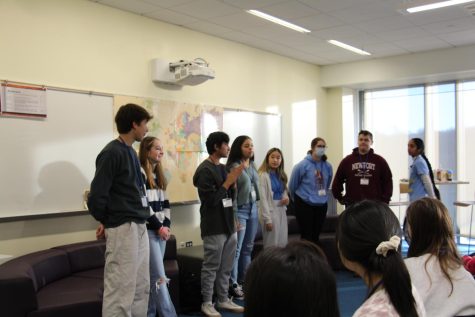
Abel’s college journey began with QuestBridge, an organization dedicated to opening doors for first-generation, low-income (FGLI) high school students. During his junior year, he applied for a program through QuestBridge called College Prep Scholars. He likened the process to a mini-college application, where students can apply for programs, benefits, and other college resources. Abel applied for College Prep Scholars with the mindset of, “Whatever happens, happens.” A few months later, he was excited to learn that he had received the national distinction, which would later set him apart from other applicants for competitive colleges.
In the meantime, he joined another program called College4All, in which college students assist high school students applying for post-secondary institutions. Here, he was introduced to the concept of fly-in programs, where colleges provide all-expenses-paid visit opportunities for high school students. “Apply, see what happens,” said Abel on his mindset. “Regardless of the outcome it would have been an experience to learn from.” Fortunately, he was accepted to all three colleges’ programs for which he had applied: Amherst College, Bowdoin College, and Swarthmore College.
Abel realized how momentous these honors were when he arrived on campus. There, admissions officers informed him that acceptance to their fly-in program almost guaranteed admittance to their schools when he applied as a senior. “I started to realize that I had some sort of potential,” he reflected on the confidence boost. He decided to apply to be a QuestBridge finalist, opting out of its match program because the distinction of being selected as a finalist was commendable in itself. Earning this prestigious honor was yet another validation for Abel as he began to face the brunt of the college application season.
His primary goal was Yale University because of its outstanding political science program as well as its proximity to home. As a result, he was extremely discouraged when he received a rejection letter in December, having applied Single-Choice Early Action. Abel admits that he thought about giving up. At one point, he considered applying Early Decision II to Bowdoin College, recognizing his high likelihood of being accepted as a result of his earlier acceptance to its fly-in program. Still, he persisted. “Take that risk,” he told himself. “You’ve taken many risks before, and look how they turned out.” His college counselors warned him that this application cycle would be one of the most competitive in college admissions history.
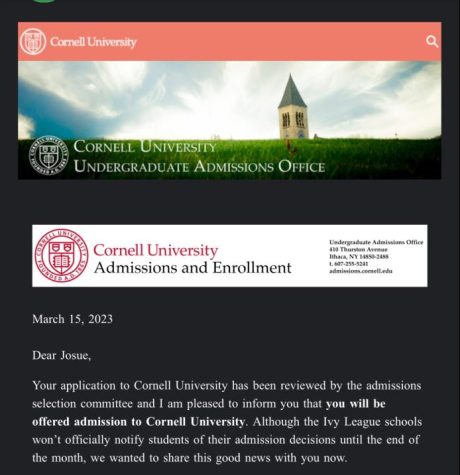
Abel was disappointed when he was waitlisted and even rejected from a few colleges. Then, in mid-March, his results took a turn for the better. Despite his acceptance to fly-in programs signifying a greater likelihood of being accepted, he only expected to be admitted to one liberal arts college. Upon receiving admission to Bowdoin, Swarthmore, and Amherst, Abel felt very fortunate. That same week, on March 15th, he opened a likely letter from Cornell University, which proclaimed that he would be accepted to Cornell. He learned that this esteem, sent out by Ivy League institutions to notify students of admittance a few weeks before official decision release dates, was reserved for the top 1% of applicants to each Ivy League school.
Abel took a while to soak in this honor. However, in further researching the school, he found it to be more engineering- and agriculturally-based in academics. It was also quite far from home, which for him was an important factor. As March 30th, otherwise known as Ivy Day, approached, he figured he would probably attend Amherst College. That night, he sat down with his mother and sister, using an online roulette to decide the order of letters he would open.
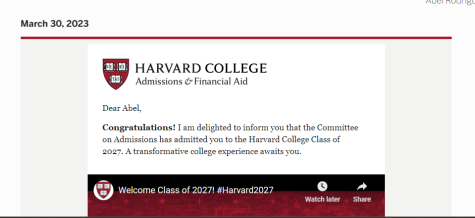
The first school the roulette selected was Harvard University. As he opened his applicant portal, his mom declared that he would be accepted. Abel didn’t really listen, bracing himself for the extreme odds he was facing. So when he clicked the status update and saw confetti, he lost all control. He had been accepted to Harvard. Jumping up and down and screaming, he told his mom that it didn’t matter how the rest of his decisions went. Harvard, after all, has the number one political science program in the nation.
He sat down again to open Brown University’s decision letter, and he recalled how he and his mom had toured the campus months before. His mom had been known to have incredible intuition, so he wondered about a passing comment she’d made, that the campus felt familiar, and that she felt he would be accepted. He’d dismissed it at first, but now, his heart still raced with the thrill of his Harvard acceptance preceded by his mom’s affirmation. So when the screen burst with confetti again, he went, as he described, “absolutely crazy” for the second time that night.
He returned to his computer screen one more time to open Princeton, thinking to himself, “I don’t care anymore. I got into my top schools.” When he clicked the status update and saw a tiger along with the congratulatory letter, then, Abel was at a loss for words. Tears welled up in his eyes, and he was overcome with emotion. As a first-generation student, getting into college was an immense struggle. “Knowing that I was able to achieve all of this even with the obstacles that I faced was very humbling,” he reflected. “But it was also very empowering.”
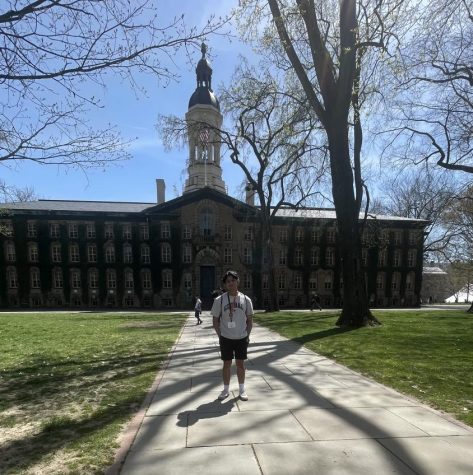
Abel is in the process of deciding between Harvard, Princeton, and Brown. He is leaning towards Harvard University, but he will consider each option by attending admitted students’ days and comparing financial aid packages. A key criterion in his final choice will be the number of resources available to him to create a college counseling program for FGLI students. He plans to create a group called La Familia, which, with the help of his future classmates, will provide college essay and application assistance for immigrant and undocumented students.
As for his legacy at Morgan, Abel appreciates the growing Latino and immigrant community in the town of Clinton. He hopes that students with similar backgrounds, obstacles, and circumstances will be inspired by his journey. “I don’t want that praise,” he said. “I want that influence.” He hopes that when he returns to Morgan one day, he will see other FGLI students like himself pushing themselves academically and giving back to the community. “That’s when I’ll say to myself, ‘Alright, Abel, you did it,’” he shared.
Abel’s key takeaway is: You are your biggest obstacle. “Through this whole process there wasn’t a single person who told me, ‘Abel, you cannot do it,’” he contemplated aloud. “Except for myself. Now here I am.”


